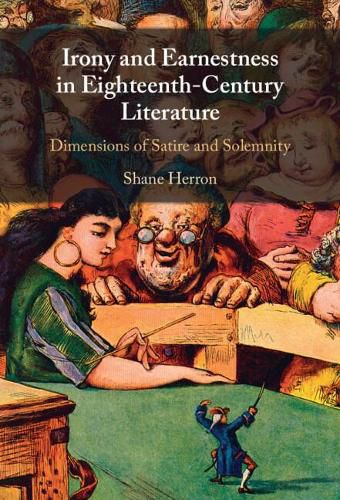Readings Newsletter
Become a Readings Member to make your shopping experience even easier.
Sign in or sign up for free!
You’re not far away from qualifying for FREE standard shipping within Australia
You’ve qualified for FREE standard shipping within Australia
The cart is loading…






The conventional literary history of the eighteenth century holds that upstart novelists and other intensely serious writers worked against the conservative and ironic sensibility of an earlier generation of satirists. However, many of these ostensibly earnest writers were exceptional satirists in their own right, employing the same ruses, tricks, and deceptions throughout their work. The novels of such canonical figures as Behn and Defoe, for example, passed themselves off as real documents, just as an earlier generation of hack writers combined the serious and the absurd. Re-examining this nexus between the ludicrous and the solemn, Shane Herron argues that intense earnestness was itself a central component of the ironic sensibility of the great age of literary satire and of Swift’s work in particular. The sensationalism and confessionalism of earnestness were frequently employed tendentiously, while ironic and satirical literature often incorporated genuine moments of earnestness to advance writerly aims.
$9.00 standard shipping within Australia
FREE standard shipping within Australia for orders over $100.00
Express & International shipping calculated at checkout
The conventional literary history of the eighteenth century holds that upstart novelists and other intensely serious writers worked against the conservative and ironic sensibility of an earlier generation of satirists. However, many of these ostensibly earnest writers were exceptional satirists in their own right, employing the same ruses, tricks, and deceptions throughout their work. The novels of such canonical figures as Behn and Defoe, for example, passed themselves off as real documents, just as an earlier generation of hack writers combined the serious and the absurd. Re-examining this nexus between the ludicrous and the solemn, Shane Herron argues that intense earnestness was itself a central component of the ironic sensibility of the great age of literary satire and of Swift’s work in particular. The sensationalism and confessionalism of earnestness were frequently employed tendentiously, while ironic and satirical literature often incorporated genuine moments of earnestness to advance writerly aims.